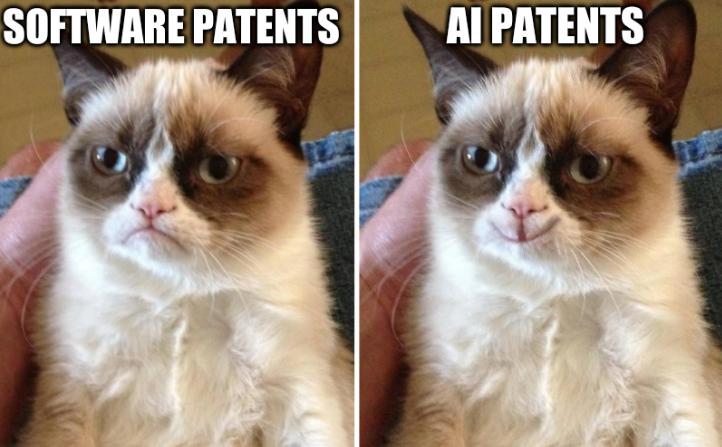

THE ABOVE-MENTIONED article already took note of similiarities if not overlaps in the way the main system in Europe and in the sole one in the US generally bypass the law itself. We continue to worry that the EFF ignores European Patent Office (EPO) abuse by António Campinos and Benoît Battistelli -- abuse which includes illegal granting of software patents in Europe. They only care about copyright policy in Europe while pocketing Google money. That money comes from surveillance -- something the EFF proclaims to be against and which emboldens EFF critics. Inquisitive readers can find more rants about this in yesterday's IRC logs.
"They only care about copyright policy in Europe while pocketing Google money."We're generally thankful for the EFF; it has just published, if not weeks belatedly, this blog post about misguided 35 U.S.C. ۤ 101 guidance, designed to overcome Alice (SCOTUS) rather than integrate it into common practice. In the EFF's own words: (it was included in Daily Links already)
In 2014, the Supreme Court decided the landmark Alice v. CLS Bank case. The Court held generic computers, performing generic computer functions, can’t make something eligible for patent protection. That shouldn’t be controversial, but it took Alice to make this important limitation on patent-eligibility crystal clear.
Last year, the Patent Office decided to work around that decision, so that the door to bogus software patents could swing open once again. The office issued new guidance telling its examiners how to avoid applying Alice. In response to that proposal, more than 1,500 of you told the Patent Office to re-consider its guidance to make sure that granted patents are limited to those that are eligible for protection under Alice. Unfortunately, the Patent Office wouldn’t do it. The office and its director, Andre Iancu, refused to adapt its guidance to match the law, even when so many members of the public demanded it.
"They redefined "certainty" in the same way EPO redefined "quality" (to mean the opposite of it)."We've thankfully seen some supportive feedback about the EFF's post. The CCIA said: "The Patent Office is promoting certainty in getting patents at the expense of making issued patents far less certain, with negative impacts on manufacturers and patent owners alike."
There's also a blog post about it (among several others) in our Daily Links.
The EFF tweeted that USPTO "should follow Supreme Court rulings, but the office's own data show that it's avoiding them to issue more patents."
They redefined "certainty" in the same way EPO redefined "quality" (to mean the opposite of it).
Why does the USPTO do this?
"The EFF does get involved in European politics and even Latin-American politics when the EFF's paymasters request that. How many times did it write about copyright law in Europe? Like a hundred times? Yet nothing (ever) about patents...""Because it can," said Jan Wildeboer from Red Hat/IBM (he was a campaigner against software patents in Europe before Red Hat hired him). "The USPTO and other patent offices around the world have granted patents on a lot of things that shouldn’t deserve a 20 year monopoly."
"USPTO is ignoring Alice, Iancu has reopened the floodgates of software patents," Benjamin Henrion said before shaming Wildeboer into leaving IBM in protest, noting that IBM played a big if not the biggest role in lobbying for what Iancu did. Our general position is that Wildeboer can perhaps persuade the former Red Hat CEO, now a President at IBM, to change IBM's patent policy. Time will tell if that can happen...
From what we've heard from Wildeboer, he is at least trying.
It would be counterproductive to shame the EFF and Wildeboer, knowing that they're generally on our side. But we shall continue asking -- as we have politely done for a long time -- why the EFF refuses to comment on EPO matters. The EFF does get involved in European politics and even Latin-American politics when the EFF's paymasters request that. How many times did it write about copyright law in Europe? Like a hundred times? Yet nothing (ever) about patents... ⬆